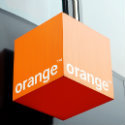After signing a major European outsourcing deal with Ericsson, Orange is now considering its options in Africa.

BARCELONA -- Mobile World Congress 2015 -- Keen to realize economies of scale and improve customer services through further outsourcing of its network management activities, Orange is now considering its options in Africa after striking a major European deal with Sweden's Ericsson, according to technical strategy director Yves Bellego.
Announced earlier today at the Mobile World Congress, the five-year Ericsson AB (Nasdaq: ERIC) contract was finalized last year and covers the markets of Spain, Belgium, Romania, Slovakia and Moldova, where the French operator serves more than 30 million customers in total.
The French phone incumbent believes the arrangement will generate important economies of scale and allow it to improve customer service in the five European markets it covers.
Speaking to Light Reading on the sidelines of MWC, Bellego said the deal ties in with plans unveiled back in 2011 to realize scale benefits through the outsourcing of network management activities. "Africa is of course quite different from Europe but we are currently looking at what to do there," he says.
According to its statement, Ericsson is providing a range of managed services covering network operations, performance, optimization, expansion and field support and maintenance. It is also offering a spare parts management service for Orange (NYSE: FTE)'s fixed-line, 2G, 3G and 4G access networks.
For all the latest news from the wireless networking and services sector, check out our dedicated Mobile content channel here on Light Reading.
A number of Orange staff are set to join Ericsson as part of the arrangement, although Bellego would not be drawn on the details. Employees who remain at the operator's local subsidiaries will be able to focus on improving the quality of the customer experience, he said.
Missing from the deal are the European markets of Armenia and Poland. Bellego says the former was excluded because Orange would not have been able to realize significant benefits at such a small operation.
In Poland, meanwhile, Orange has already been able to make efficiency improvements through its network-sharing venture with Germany's Deutsche Telekom AG (NYSE: DT). The Polish business also operates the country's main fixed-line network.
Similarly, Orange has no plans to outsource network management in France, where the sheer size of its fixed, mobile and IT operations has already given rise to scale benefits.
Along with network sharing, the phenomenon of outsourcing has previously triggered concern that operators may lose oversight of core assets. But Bellego says Orange is still calling the shots on strategic matters such as upgrades to higher-speed technologies.
The operator can easily justify its optimism in this regard. It has plenty of experience in the outsourcing arena and hired Ericsson rival Nokia Siemens Networks (now Nokia Networks ) to manage operations in Spain back in 2009.
Indeed, according to Bellego, the multi-country Ericsson deal follows from other contracts that saw Orange employees join either Ericsson or one of its outsourcing rivals.
Facing tough conditions throughout the European region, Orange has recently come under pressure to slash operating costs and warned that earnings would fall to between €11.9 billion ($13.3 billion) and €12.1 billion ($13.6 billion) this year, from €12.2 billion ($13.7 billion) in 2014, when reporting results earlier this month. (See Orange Feels European Squeeze.)
Following a period of expansion, Orange now operates networks across a number of African countries, including Botswana, Cameroon, the Congo, Egypt, Guinea, the Ivory Coast, Kenya and Mali.
— Iain Morris, 

 , News Editor, Light Reading
, News Editor, Light Reading
Read more about:
EuropeAbout the Author(s)
You May Also Like











